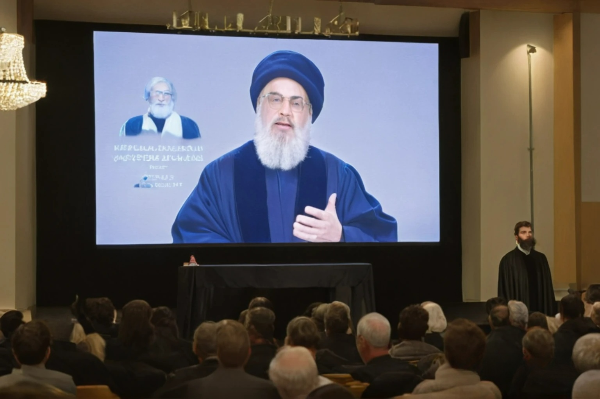The situation in Lebanon regarding Hezbollah's role in the ongoing conflict with Israel is deeply complex and charged with historical, political, and sectarian nuances. Here’s a breakdown of the key points:
Hezbollah's Position and Actions
- Engagement with Israel: Since October 8, Hezbollah has engaged in low-level conflict with Israel, framing it as support for Hamas against Israeli operations in Gaza. This has led to increased tensions and civilian casualties on both sides.
- Objective: Hezbollah claims its actions are in solidarity with Gaza and in response to Israeli aggression, aiming to maintain a state of controlled conflict rather than escalating into a full-scale war.
- Perceived as a Resistance Group: Many view Hezbollah as a key player in resisting Israeli occupation and aggression, recalling its role in ending Israel’s 18-year occupation of southern Lebanon in 2000.
Internal Lebanese Dynamics
- Sectarian and Political Divide: Hezbollah's actions have sparked controversy within Lebanon, highlighting the deep-seated sectarian and political divides. The criticism is particularly strong among Christian factions and certain Sunni groups.
- Critics’ Concerns: Key Christian leaders, like Samir Geagea (Lebanese Forces) and Samy Gemayel (Kataeb Party), argue that Hezbollah is dragging Lebanon into an unwanted and unilateral conflict, risking more Israeli retaliation and further destabilization of Lebanon.
- Supporters’ Viewpoint: Supporters argue that Hezbollah is a necessary force against Israeli and Western influences in the region, protecting Lebanese sovereignty and supporting Palestinian resistance.
Hezbollah’s Influence and Tactics
- Control and Capabilities: Hezbollah has grown into a sophisticated military and political organization, with significant influence in Lebanon’s domestic affairs. Its military capabilities and secure communication networks have been points of contention, especially when challenged by other Lebanese factions.
- Response to Internal Threats: Historically, Hezbollah has shown its readiness to use force within Lebanon to protect its interests, as seen in the 2008 West Beirut standoff, where it reversed a government decision to dismantle its telecommunications network through a show of force.
Potential for Escalation
- Fear of Wider Conflict: There is a palpable fear among Lebanese factions that continued hostilities could lead to an all-out war with Israel. This could exacerbate internal divisions and potentially lead to a new wave of civil strife and displacement within Lebanon.
- Sectarian Considerations: If conflict escalates, there are concerns about how the displacement and sectarian dynamics will play out. Hezbollah’s actions and Israel's response could further strain Lebanon’s already fragile sectarian balance.
Perspectives on Hezbollah's Role
- Support for Hezbollah’s Actions: Pro-Hezbollah sentiments are often rooted in the view of the group as a protector against Israeli aggression and a champion of the Palestinian cause.
- Calls for Restraint: Some factions call for Hezbollah to restrain its military actions to avoid dragging Lebanon into a broader regional conflict, arguing for a more collective decision-making process involving all Lebanese groups.
In summary, Hezbollah’s involvement in the conflict with Israel is polarizing within Lebanon. It reflects deeper issues of national identity, sovereignty, and sectarian balance. As the situation evolves, the risk of broader conflict remains a critical concern for all parties involved.

